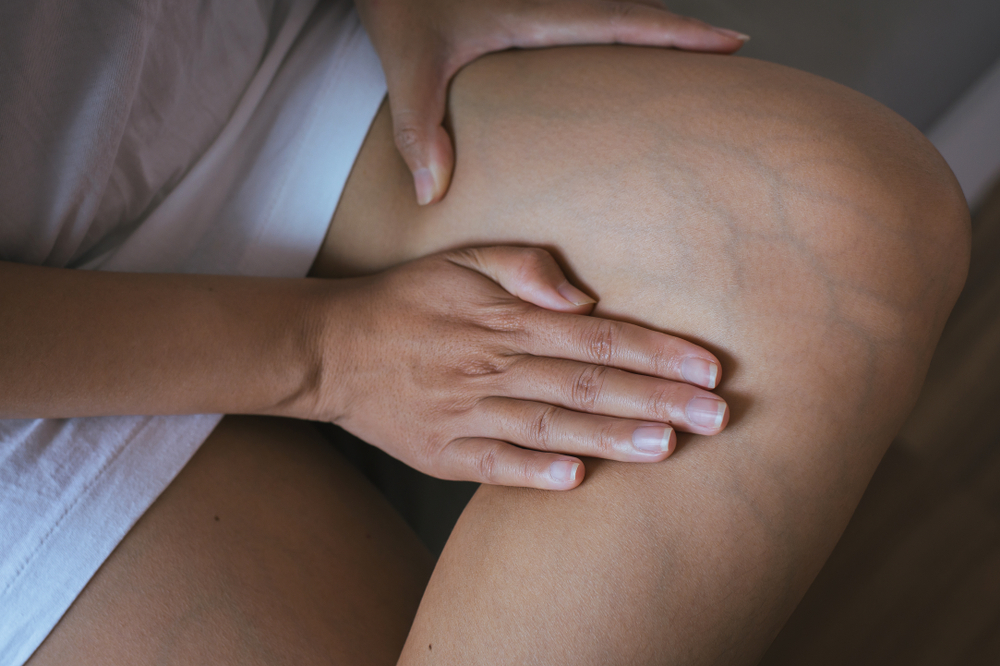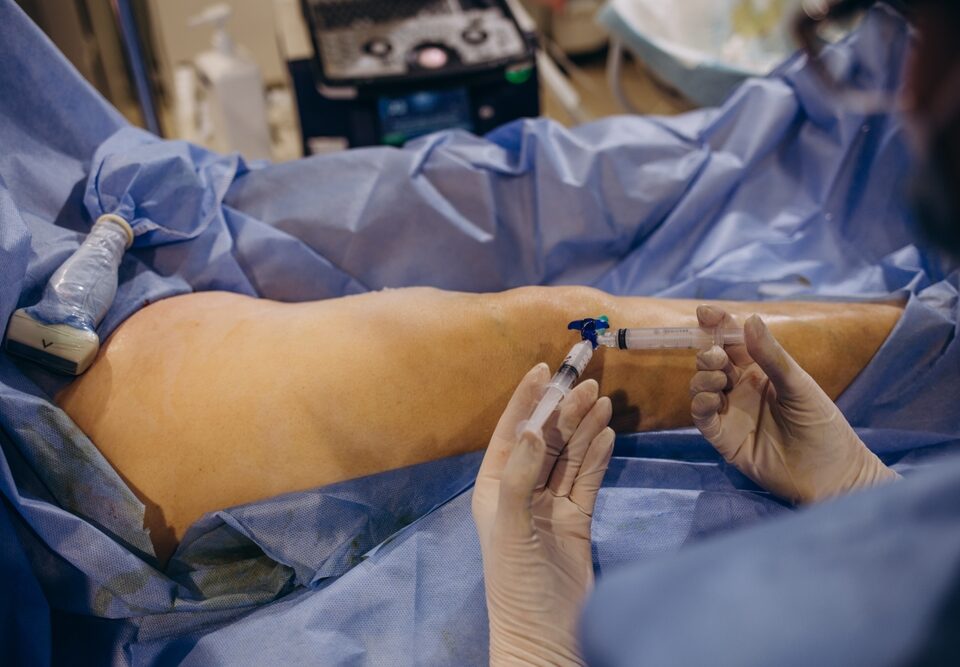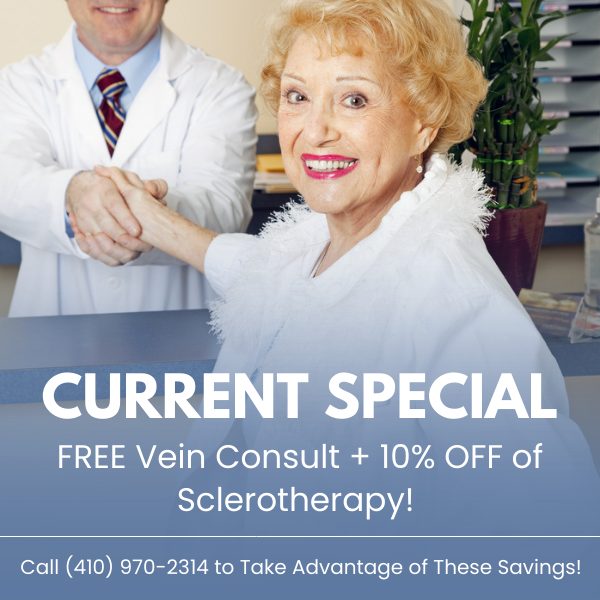
Leg Veins: Answers from Vascular Specialists
March 29, 2018
Sclerotherapy: All About Treatment in Baltimore, Maryland
April 25, 2018As summer nears, many individuals are excited for warmer weather and spending time at the beach or pool.
However, women with varicose veins may be less enthusiastic and feel self-conscious about exposing their legs in shorts, dresses, and bathing suits.
Fortunately, these patients have several options for treatment of varicose veins to look and feel summer-ready.
What Are Varicose Veins?
Varicose veins are blue or purple bulges that have a rope-like texture and are commonly seen in the legs and lower extremities. They occur when valves in the veins become diseased or damaged and are not able to properly direct blood back to the heart.
As a result, blood can flow backward and cause these veins to swell and protrude.
Varicose Vein Symptoms
For some patients, varicose veins are a significant cosmetic concern. However, others may feel discomfort, stinging, and pain after long periods of sitting or standing.
Less often, individuals with varicose veins may also note skin ulcers on their legs.
Who Is More Likely to Get Varicose Veins?
Varicose veins occur more frequently in women than men due to hormonal fluctuations during premenstrual syndrome (PMS), pregnancy, and menopause.
Obesity, increased age, genetics, venous injury, and prolonged periods of sitting and standing are also risk factors for varicose veins.
Pregnancy and Varicose Veins
Pregnancy has been linked to a greater incidence of varicose veins, as it increases blood volume in the body and reduces circulation in the lower extremities. Researchers also believe that estrogen may weaken vein walls.
How Are Varicose Veins Diagnosed?
A thorough history and physical exam of the patient’s legs on standing can assist in the diagnosis of varicose veins. Furthermore, blood flow in the legs and lower extremities may be assessed with a venous duplex ultrasound.
Treatments for Varicose Veins
The first line of treatment for varicose veins are often lifestyle changes that include losing weight, increasing exercise, and decreasing time spent sitting or standing. Providers also recommend the use of compression garments to support veins and improve circulation.
Sclerotherapy is a non-invasive treatment for spider veins and small varicose veins and typically requires minimal to no downtime. During this procedure, the affected veins are injected with a chemical substance that causes them to collapse.
Endovenous thermal ablation (EVTA) applies light-based energy or radiofrequency to varicose veins through a thin catheter. This thermal damage causes the vein to close and then be reabsorbed by the body.
An ambulatory phlebectomy involves creating tiny punctures to remove damaged veins in sections. This procedure does not require stitches and has minimal to no downtime.
Prevention of Varicose Veins
While it is impossible to completely avoid varicose veins, patients can take several proactive measures to decrease their occurrence.
Providers advise that patients increase their muscle tone and circulation through regular exercise. It’s also important to maintain a stable weight and a healthy diet.
Additionally, women should avoid high-heeled shoes and tight clothing that can constrict extremities and reduce blood flow.
Lastly, individuals should take care to elevate their legs above their heart whenever possible throughout the day. They should also avoid constant leg crossing and prolonged periods of sitting or standing.
Related Medical Conditions
While many varicose veins usually appear in the legs and lower extremities, they can also occur in the veins surrounding the anus in the form of hemorrhoids. This condition is caused by straining during bowel movements and pressure during pregnancy.
If patients note any sudden and significant swelling in the legs, they should seek immediate medical attention as this could be a sign of a thrombophlebitis of the deep veins.
Want to know more about sclerotherapy treatment in Columbia, Maryland? Call the Vein Center of Maryland to schedule an appointment today.
We are conveniently located in Westminster, Eldersburg, Baltimore, Hunt Valley and Bel Air.
We also service Ellicott City and in Howard County.




